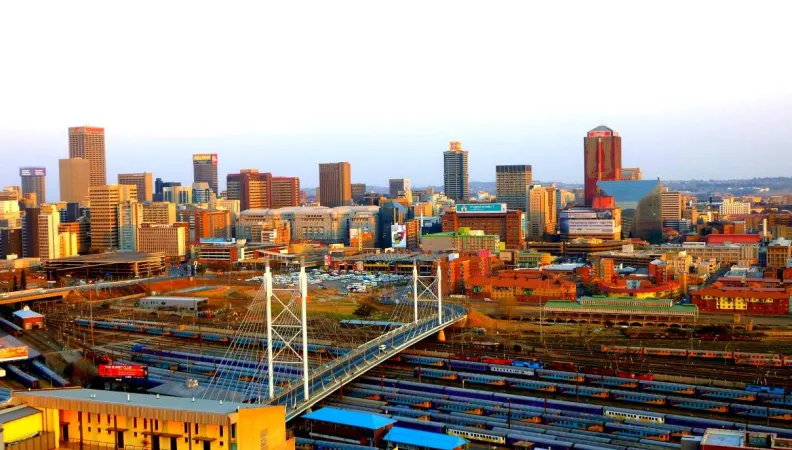Share the page
Transforming cities, strengthening social cohesion and reducing the carbon footprint
Project


-
Project start date
-
-
Project end date
-
-
Project duration
-
15 years
-
AFD financing amount
-
Rand 1555440000
-
Country and region
-
Location
-
Johannesburg
-
Type of financing
-
Beneficiaries
-
Johannesburg Metropolitan Municipality
AFD is financing the City of Johannesburg’s spatial transformation strategy, which is based on a more inclusive, more compact and low-carbon development model.
Context
Johannesburg, South Africa’s economic capital, has been shaped by decades of racial segregation and is marked by significant socioeconomic inequalities. The strong attractiveness of the city has led to a rapid and disorganized expansion, which has exacerbated social problems (impoverishment of the city center, precarious situation in remote outlying areas, crime) and environmental problems (increase in pollution and vulnerability to climate events). The Municipality of Johannesburg has set out to “re-stitch” the city by developing a roadmap to regenerate the city center (Inner City Roadmap), as well as a densification program based on public transport corridors (Corridors of Freedom).
Description
AFD is supporting the city’s spatial transformation strategy by financing part of the 2014-2017 municipal investment program. The loan is combined with several technical assistance components aimed at assisting the Municipality to implement a spatial planning policy, while assessing its socioeconomic impacts and integrating climate issues (eco-neighbourhoods, urban service management and green infrastructure). This technical assistance will also promote French expertise in sustainable urban development via partnerships with the City of Paris, the Urban Community of Lille Métropole and French consulting firms.
Impacts
The project has two objectives:
- Reduce social inequalities by promoting access for the poorest populations to decent housing, public infrastructure and employment opportunities;
- Bridge the urban divide in order to make the city more efficient, reduce the cost of infrastructure for residents, and mitigate the city’s carbon footprint.


